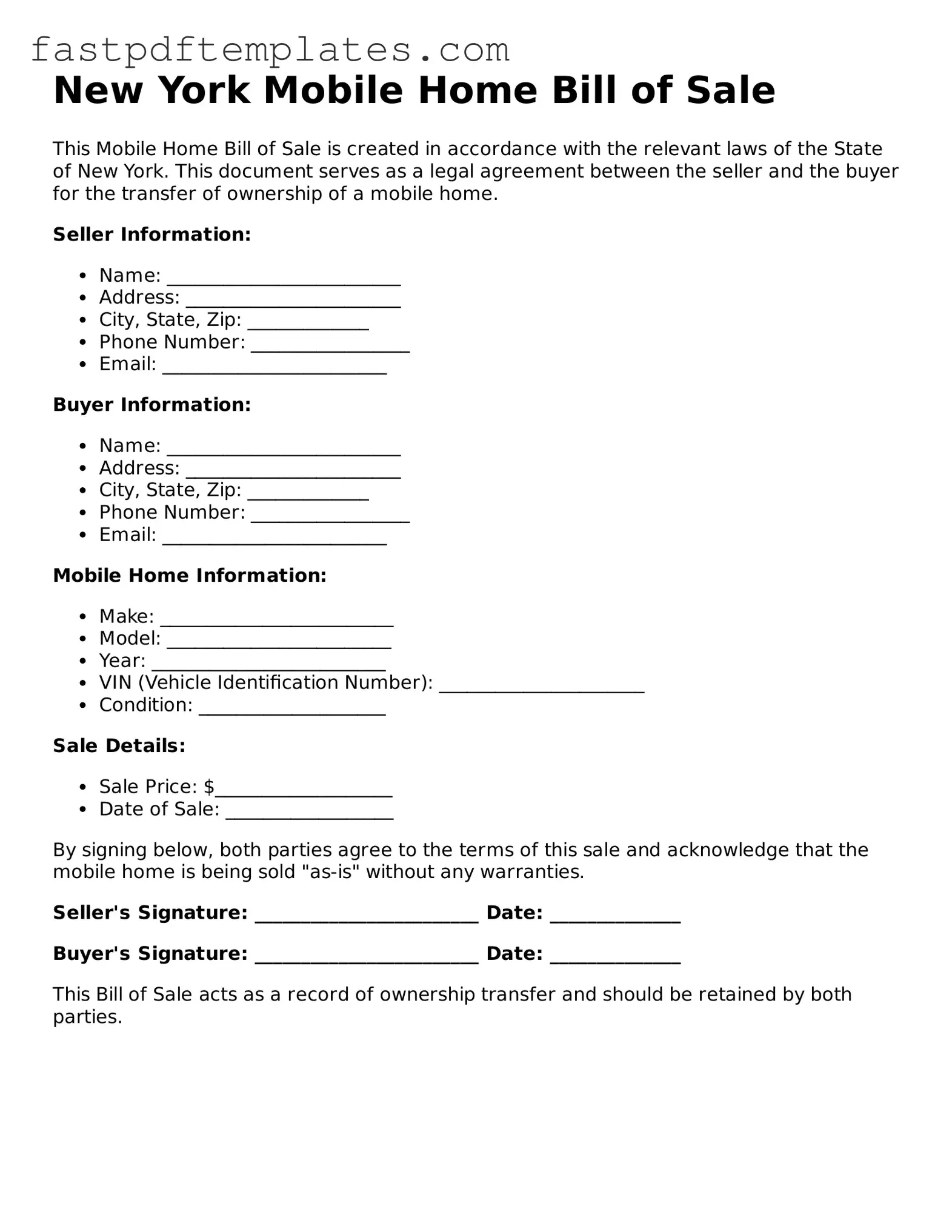The New York Vehicle Bill of Sale is similar to the Mobile Home Bill of Sale in that both documents serve as proof of transfer of ownership. When you buy or sell a vehicle, you need a bill of sale to document the transaction. Just like with mobile homes, this form includes details about the buyer, seller, and the vehicle itself, such as the make, model, and vehicle identification number (VIN). Both documents protect the interests of both parties and help in registering the new ownership with the relevant authorities.
The Boat Bill of Sale is another document that shares similarities with the Mobile Home Bill of Sale. When purchasing or selling a boat, a bill of sale is essential to confirm the transfer of ownership. This document captures key information about the boat, such as its make, model, and hull identification number (HIN). Just like with mobile homes, having this form helps ensure that both the buyer and seller are protected and that the transaction is legally recognized.
The Trailer Bill of Sale is also akin to the Mobile Home Bill of Sale. Trailers, whether for transporting goods or recreational use, require a bill of sale to document their sale. Similar to mobile homes, this form includes important details about the trailer, including its make, model, and vehicle identification number (VIN). This document is crucial for registering the trailer and providing proof of ownership, ensuring a smooth transition between parties.
The Personal Property Bill of Sale functions similarly as well. This document is used for the sale of various personal items, such as furniture or electronics. Like the Mobile Home Bill of Sale, it outlines the details of the transaction, including the buyer and seller's information and a description of the item being sold. This form protects both parties and serves as a record of the sale.
The Real Estate Purchase Agreement can also be compared to the Mobile Home Bill of Sale, especially when the mobile home is considered real property. This document outlines the terms of the sale of real estate, including the property description, purchase price, and any contingencies. While the Mobile Home Bill of Sale is specific to mobile homes, both documents aim to formalize the transfer of ownership and protect the interests of both parties involved.
The Lease Agreement is another document that shares similarities with the Mobile Home Bill of Sale, particularly when mobile homes are rented or leased. This agreement outlines the terms and conditions of the lease, including rent, duration, and responsibilities of both the landlord and tenant. While it doesn’t transfer ownership like the Mobile Home Bill of Sale, it still establishes a legal relationship between the parties regarding the use of the mobile home.
Lastly, the Warranty Deed is comparable in that it is used to transfer ownership of property, including mobile homes when they are classified as real estate. This document provides a guarantee that the seller has the right to sell the property and that it is free of liens. While the Mobile Home Bill of Sale serves a different purpose by documenting a sale, both documents are essential for establishing clear ownership and protecting the rights of the buyer and seller.

